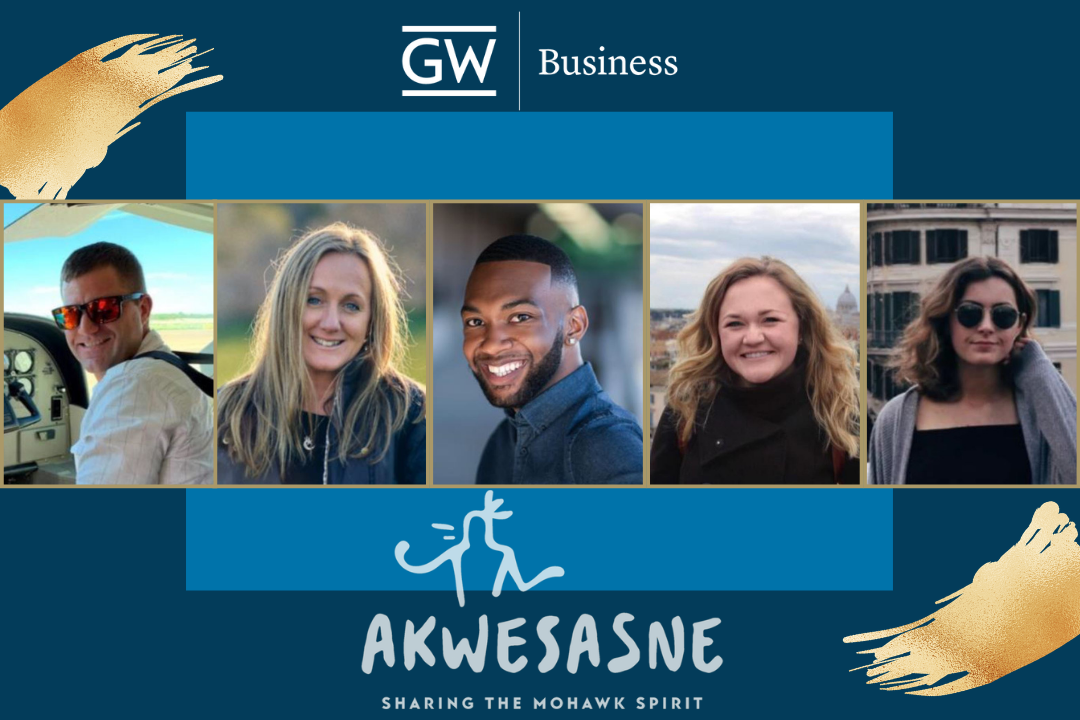Through a unique project-based learning experience, students enrolled in the spring 2021 TSTD 6270 Research Methods and Applications course had an opportunity to develop recommendations in support of the Akwesasne community’s tourism and economic development goals. Federally recognized by the U.S. government as the St. Regis Mohawk Tribe, the Akwesasne is an Indigenous community located where the Canadian provincial boundaries of Ontario and Quebec meet New York State. The Akwesasne, like many communities and destinations, is facing increased hardships due to COVID-19. To overcome these challenges, the Akwesasne hope to secure grant funding for the development of sustainable cultural tourism in the region, which could also help bolster the community’s overall long-term development goals.
The faculty leader for this partnership, Professor Cevat Tosun, Ph.D., Eisenhower Chair and professor of Tourism Studies and Management and director of the Master of Tourism Administration program at the GW School of Business (GWSB), described the origin and impact of this meaningful collaboration: “The project was intended to provide an opportunity for students to develop creative solutions to address a unique tourism challenge.” What started out as a seemingly straightforward project quickly transitioned into a complex and collaborative research-heavy consulting venture. Prof. Tosun elaborated, “After various brainstorming discussions with the student team including Casey Canevari, Frances Homan, Sarah-Jane Johnson, Edwyn Mitchell and Tessa Perkins, we decided to help a federally recognized Native American community, the St. Regis Mohawk Tribe, to develop sustainable Indigenous tourism in their community. The course project ("The Development of an Economic Data Collection Strategy for Akwesasne Travel of the St. Regis Mohawk Tribe") contributed to the growth of a unique Indigenous tourism destination. It was an extraordinary team effort by a group of distinguished students who are well on their way to becoming world-class consultants and industry leaders.”
The team tackling this consulting project undertook interviews with leaders in the tourism body Akwesasne Travel as well as professors from GW to identify key challenges the community is facing. From there, they conducted extensive research and data analysis to develop an economic impact data collection strategy designed to help the Akwesasne achieve their goals of promoting cultural heritage and connecting with visitors through tourism offerings.
The students’ primary point of contact for the project was Gail McDonald, an Akwesasne Heritage Complex project developer in the Saint Regis Mohawk Tribe Office of Economic Development. As a committee member to which the student consulting group presented, Ms. McDonald was fully engaged with the students and very impressed with their creative and professional output. In an appreciation message to the students, she stated, "I have been involved in many research projects in the past and felt the student team clearly paid respect to our culture and the complexities of our geography and its challenges."
As the Akwesasne do not want to bring mass tourism to their doors and aspire to focus more on cultural tourism in the future, rather than casino gaming, this project provided a special opportunity for the community to work closely with GWSB students in developing finely tuned recommendations and the best methodologies for data collection to better attract niche markets that honor and sustain their true cultural heritage.
Speaking on behalf of the team, Master of Tourism Administration candidate Casey Canevari (’22) reflected on the experience, stating “This was much more than just a project for a grade for all of us. This was a project with meaning and one which we undertook because we wanted to support a greater cause.” Canevari repeatedly spoke to the “bigger picture” of this collaboration, noting how rewarding it was to provide tangible solutions to real world problems with far-reaching impact. Further showcasing how project-based learning goes well beyond the classroom, Canevari reflected on the “opportunity to continue working with the community... I intend to visit the community as soon as they open up again this summer.”
To learn more about the Akwesasne indigenous community’s travel opportunities and cultural heritage — and even participate in virtual tours — visit akwesasne.travel.


